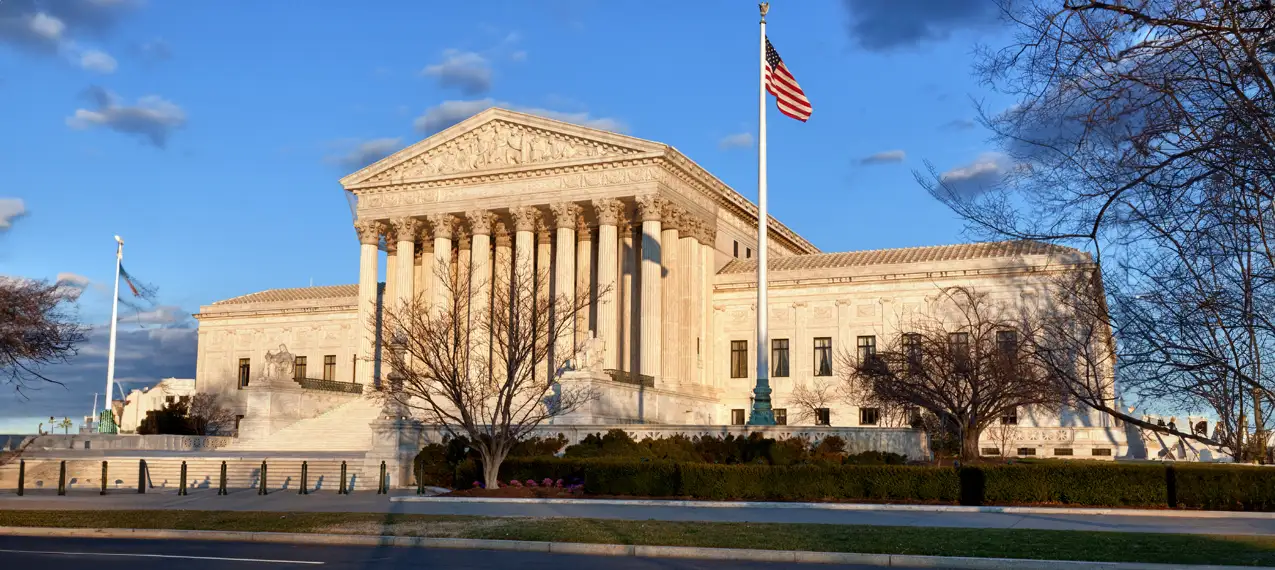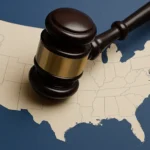
This week the Supreme Court will hear four cases. On November 27 the Court will hear Brown v. United States where it will consider whether the “serious drug offense” section of the Armed Career Criminal Act utilizes the federal drug schedules in force during the time of a federal firearm offense. Justin Brown was found guilty of being a felon in possession of a firearm and engaging in drug dealing. Prior state marijuana convictions triggered a 15-year minimum sentence for Brown, as stipulated by the Armed Career Criminal Act. Brown appealed and argued that these prior state drug convictions should not cause ACCA to be applied because, as Oyez notes, they are “no longer a categorical match to their federal counterpart.”
On November 28, the court will hear McElrath v. Georgia and Wilkinson v. Garland. In the first, the Supreme Court will decide whether the Double Jeopardy clause applies to crimes of which a defendant was acquitted previously. Damien McElrath was found guilty but mentally ill to felony murder and not guilty due to insanity to malice murder after killing his adoptive mother. The Georgia Supreme Court vacated this ruling for a repugnant verdict and remanded the case for retrial. McElrath then argued he could not be retried for malice murder or felony murder due to the Double Jeopardy clause of the Fifth Amendment.
The second case on the 28th, Garland, involves immigration. Situ Wilkinson, from Trinidad and Tobago, overstayed a tourist visa and was later found guilty of selling crack-cocaine. Wilkinson, facing deportation, argued that doing so would cause “exceptional and extremely unusual hardship” for his US-born son. The Board of Immigration Appeals rejected his claim, and the Third Circuit Court found it did not have jurisdiction because it was discretionary. The Supreme Court will thus decide whether an agency determination about facts proving or not proving “exceptional and extremely unusual hardship” is reviewable or jurisdictional and thus not reviewable.
The final case of the week, to be heard on November 29, is Securities and Exchange Commission v. Jarkesy. The Supreme Court will consider whether the SEC’s enabling statute violates the Seventh Amendment, the Non-Delegation Doctrine, Article II of the Constitution, or a combination of these. Jarksey was investigated by the SEC in 2011, eventually being charged with fraud. Jarksey challenged, claiming the SEC had no authority to initiate and adjudicate enforcement proceedings. An Administrative Law Judge (ALJ) for the SEC rejected these constitutional arguments. Jarksey appealed the ruling by the SEC to the Fifth Circuit, which found several constitutional violations and reversed the ALJ ruling.
Landmark will continue to monitor these and other upcoming cases of interest.
SUPPORT LANDMARK LEGAL FOUNDATION
We are truly facing existential threats to our individual rights and liberties, the Constitution, and our national character. If unchallenged, this assault on our very way of life will ruin our great nation. With your financial and moral support, Landmark is not going to let that happen without a fight. Will you join us?
JOIN OUR MAILING LIST
Never miss an update from Landmark Legal Foundation as we continue the fight to preserve America’s principles and defend the Constitution from the radical left.
Landmark will NEVER share your contact information and we will not flood your inbox.





